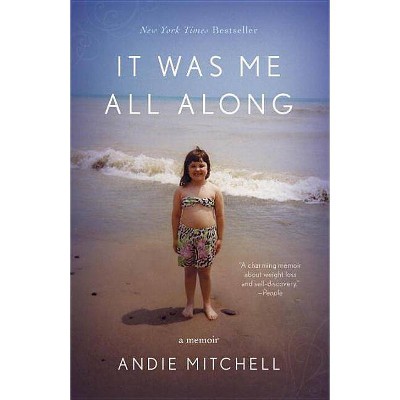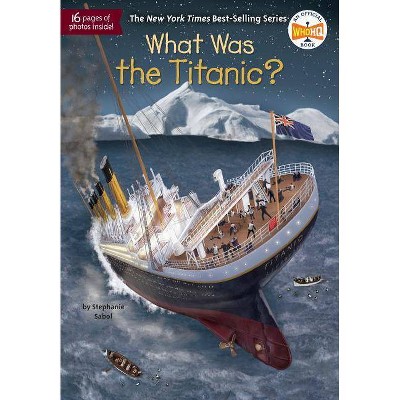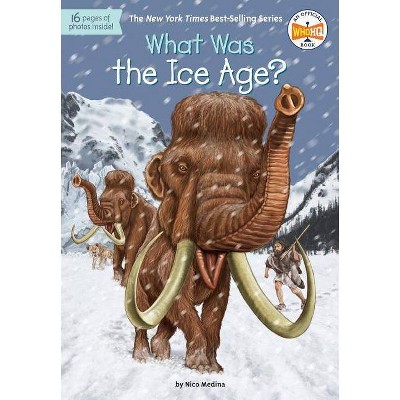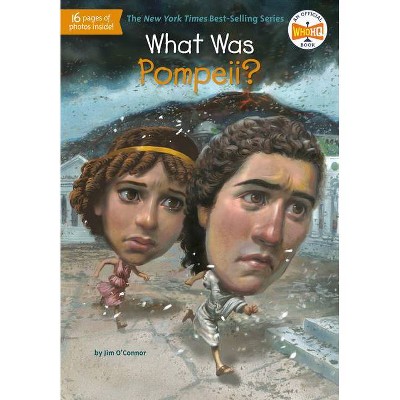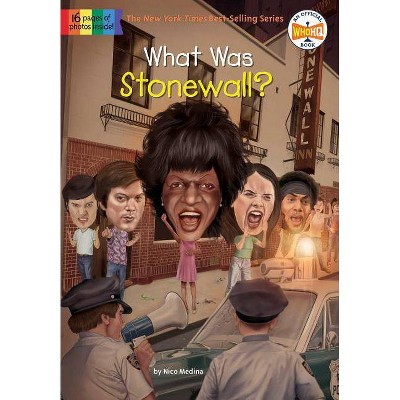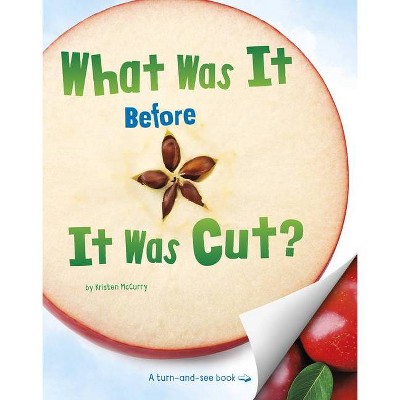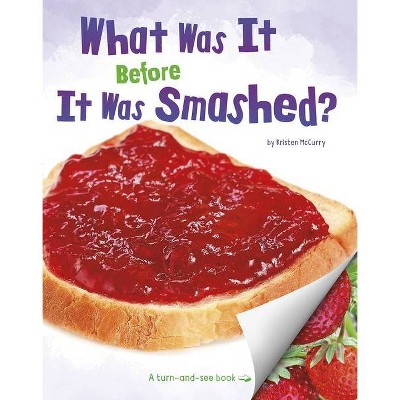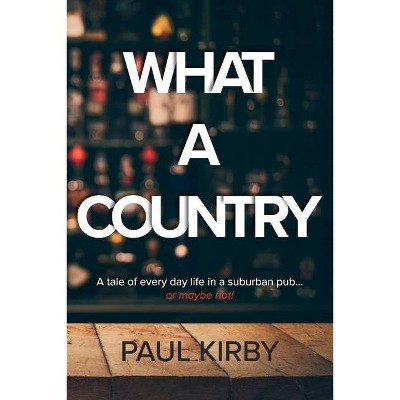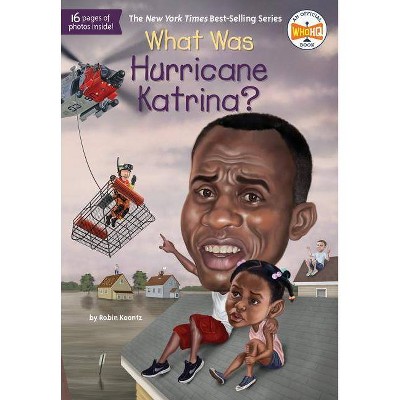What If Culture Was Nature All Along? - (New Materialisms) by Vicki Kirby (Paperback)
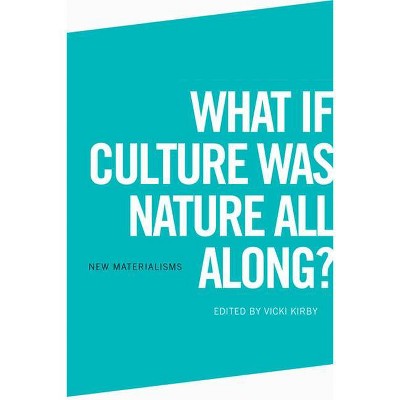
Similar Products
Products of same category from the store
AllProduct info
<p/><br></br><p><b> About the Book </b></p></br></br><p>A collection of essays that rethinks what constitutes materiality. These efforts are encapsulated by a rewriting of the Derridean axiom, 'there is no outside text' as 'there is no outside nature'.</p><p/><br></br><p><b> Book Synopsis </b></p></br></br><p><strong>Navigational tools towards a non-reductionist naturalism where matter is chameleon and agential</strong></p> <p>New materialisms argue for a more science-friendly humanities, ventilating questions about methodology and subject matter and the importance of the non-human. However, these new sites of attention - climate, biology, affect, geology, animals and objects - tend to leverage their difference against language and the discursive. Similarly, questions about ontology have come to eclipse, and even eschew, those of epistemology. </p> <p>While this collection of essays is in kinship with this radical shake-up of how and what we study, the aim is to re-navigate what constitutes materiality. These efforts are encapsulated by a rewriting of the Derridean axiom, 'there is no outside text' as 'there is no outside nature.' What if nature has always been literate, numerate, social? And what happens to 'the human' if its exceptional identity and status is conceded quantum, non-local and ecological implication?</p><p/><br></br><p><b> From the Back Cover </b></p></br></br>'Vicki Kirby has already produced an impressive corpus on the relations among life, matter and inscription. This new volume takes her unique and formidable mode of argument to a new level. For Kirby, both our conceptions of nature/culture and our notion of "turns" back to reality, materialism or life require a more complex and intellectually more generous approach to relations and mediations. Drawing powerfully from recent work in feminist and critical theory this book will redefine the ways in which we think about life, the human and the posthuman.' Claire Colebrook, Penn State University Navigational tools towards a non-reductionist naturalism where matter is chameleon and agential New materialisms argue for a more science friendly humanities, ventilating questions about methodology and subject matter and the importance of the non-human. However, these new sites of attention - climate, biology, affect, geology, animals and objects - tend to leverage their difference against language and the discursive. Similarly, questions about ontology have come to eclipse, and even eschew, those of epistemology. While this collection of essays is in kinship with this radical shake-up of how and what we study, the aim is to re-navigate what constitutes materiality. These efforts are encapsulated by a rewriting of the Derridean axiom, 'there is no outside text' as 'there is no outside nature'. What if nature has always been literate, numerate, social? And what happens to 'the human' if its exceptional identity and status is conceded quantum, non-local and ecological implication? Vicki Kirby is Professor of Sociology at The University of New South Wales, Australia. Cover design: [EUP logo] edinburghuniversitypress.com ISBN 978-1-4744-1929-1 Barcode<p/><br></br><p><b> Review Quotes </b></p></br></br><br><br><em>What if Culture was Nature all Along?</em> stands out as both a methodological and a theoretical volume. It succeeds in presenting and exploring the complexities and the co-implication of culture and nature, thought and matter, human and nonhuman, science and sociology, life and death, in action. It<br>thus demonstrates that if nature is 'writing' all the way down, writing can be neither cultural nor natural, but remains--and this is one of Derrida's major lessons--entirely other. --Stefan Herbrechter, Coventry University, <em>Australian Humanities Review</em><p></p><br><em>What If Culture Was Nature All Along?</em> is a collection of 11 essays curated by Vicki Kirby that proves that there is still something new to be said about feminist new materialisms and that there is value in facing this topic anew ... Kirby's anthology not only adds to ongoing debates, but also puts<br>feminist new materialisms into action, and by doing so she offers an insight into what feminist new materialisms can still do (and how)EL The starting point for all the essays in this collection is an engaged and generous approach, full of curiosity and unable to be satisfied with shaky theoretical<br>constructions. Thus, although essays engage in different topics and develop unique perspectives, the common attitude [is] of affirmative critique and genuine concern. --Monika Rogowska-Stangret, University of Warsaw, <em>Hypatia</em><p></p><br><br><p/><br></br><p><b> About the Author </b></p></br></br><p>Vicki Kirby is Professor of Sociology in the School of Social Sciences, The University of New South Wales. The motivating question in her research is the riddle of the nature/culture division because so many political and ethical evaluations and decisions are configured in terms of this opposition. Books include Quantum Anthropologies: Life at Large (Duke 2011); Judith Butler: Live Theory (Continuum 2006) and Telling Flesh: The Substance of the Corporeal (1997).<p>
Price History
Price Archive shows prices from various stores, lets you see history and find the cheapest. There is no actual sale on the website. For all support, inquiry and suggestion messagescommunication@pricearchive.us
